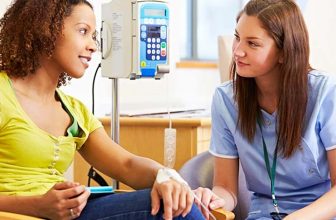
Cancer is a life-changing diagnosis. Not only are patients suddenly faced with the fragility of their life, but they’re also faced with huge life changes, often abruptly. Regrets are a tough subject to deal with at the best of times, but we all have them, and cancer patients are no exception.
Here are the things I’ve found many oncology patients wish they had been doing in their lives. Learn from their dear-bought experience so that you can avoid cancer in Cancer: 4 Daily Habits that Patients Wished They Had Practiced.
1. Think Positively as a Habit
Though thinking positively has an ‘inconclusive’ impact on prognosis, there is much research that shows patients’ quality of life significantly improves through positive thinking.
Much of dealing with a cancer diagnosis is about living in the now, rather than focusing on yesterday or tomorrow. A positive mindset or psychology can’t change a patient’s outcome directly; but, it can lower blood pressure and stress, and that’s worth something!
2. Possess a Cheerful Attitude
While cheerfulness may sound a lot like positivity; it has a distinct difference. Instead of persistent optimism, cheer is about finding joy, regardless of your circumstances.
Studies found that patients gain happiness, despite their prognosis, through increased health literacy and practicing religion or spirituality. When days are numbered, most patients would agree it’s better to be happy as much as possible.
3. Eat a more Plant-Based Diet
Here in the States, plant-based diets have become all the rage, and for good reason! Not only is a fruit and veggie-rich diet associated with decreased incidence of heart disease and high-blood pressure, it’s also been found to result in less cancer diagnoses.
According to the Mayo Clinic, about a ⅓ of cancer diagnoses could be prevented by diet and nutrition alone.
Those following meatless diets have strikingly lower incidence of cancer; with vegans (those who avoid all forms of dairy and eggs, along with meat) showing even lower rates of cancer. The stats are in: a plant-based diet is seriously well-worth considering.
4. Exercise at Least 30-45 Minutes Per Day
A sedentary lifestyle has been directly associated with increased risk of chronic disease, including cancer. Not only that, exercise has also been associated with decreased incidence of remission (the cancer coming back).
Many patients will admit to having become more sedentary and less active during cancer treatment. However, it has been shown that keeping active throughout treatment, and amping up activity when treatment is complete, can result in lower rates of remission.
But how much exercise is sufficient? The experts recommend 30-60 minutes of moderate to vigorous activity at least 5 days-a-week. However, if you make even a half hour of activity a daily ritual, your stress levels and mood will improve, creating a positive feedback loop. It’s a win-win situation!
Chemo is not for the Faint of Heart (as an oncology nurse, trust me, I know)
Although it’s bleak to consider; it’s been found that many patients in fact regret signing up for systemic treatment, aka chemo.
As I mentioned in my previous article, quality of life is essential for oncology patients. Unfortunately, there are a lot of factors associated with chemotherapy that directly result in decreased quality of life.
Side effects such as nausea, fatigue, decreased blood counts, infectious susceptibility, shortness of breath, and even cancer recurrence are all very real possibilities.
While keeping hope alive serves a purpose, it’s not uncommon for patients to wish they had never undergone treatment in the first place. Often, chemo serves as a deflated life preserver; buying some time, but not resulting in full recovery.
Avoid Cancer with this Simple Reflection Exercise
Take a few moments to relax with a cup of tea and reflect on the following: You are now 85-100 years of age and you’re soon about to pass out of the chapter of this life, lying comfortably on your bed with your family and friends around you.
Now ask yourself each of the 5 questions below:
- Would I regret that I stayed positive and cheerful as a daily habit? Yes/No
- Would I regret that I exercised daily as a habit? Yes/No
- Would I regret that I ate a vegetarian, or more plant-based diet for most of my life? Yes/No
- Would I regret helping other people as much as I could? Yes/No
- Would I regret entertaining a positive mindset and thoughts as a daily habit? Yes/No
If, hand on heart, you answered no, then there’s your answer. Practise these 5 things daily from now on!
Now, read through the next 5 questions to confirm and bring into sharp, clear contrast your own answers.
- Would I regret that I stayed negative and depressed as a daily habit? Yes/No
- Would I regret that I didn’t exercise daily as a habit? Yes/No
- Would I regret that I ate a heavy, red-meat diet for most of my life? Yes/No
- Would I regret that I didn’t help other people as much as I could? Yes/No
- Would I regret entertaining a negative mindset and thoughts as a daily habit? Yes/No
If, hand on heart, you answered yes, then there’s your answer. DO NOT practise these 5 things daily from now on!
Have you or a loved one been through a cancer diagnosis? Let us know what things you would have changed the most or done differently, which in hindsight, always appears 20/20. What advice would you give to other people? Comment below, and join in the conversation on Facebook, Twitter & Instagram!









